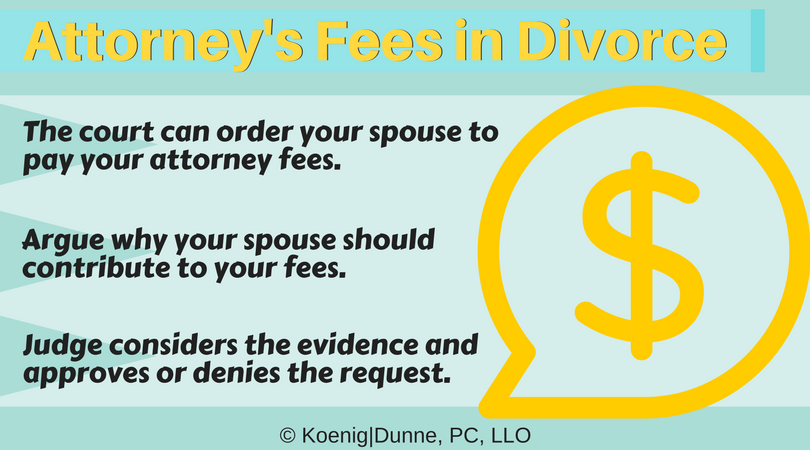Divorces can be costly and the total expense is often unpredictable. The cost of your divorce will depend upon many factors (such as whether you have children, the value of your assets, the willingness to settle versus going to trial, and the length of time from filing to resolution). In addition, you may be responsible for filing fees, mediation fees, witness fees, and, most commonly, attorney’s fees.
You may ask the court to order your spouse to pay your legal fees. When you file for divorce, if you are without sufficient funds you can ask that your spouse contribute to the payment of your attorney’s fees and costs. This does not mean that your spouse will be ordered to pay anything, but it puts the judge and your spouse on notice of your request.
In Nebraska, a judge can order one spouse to pay all or a portion of the other spouse’s attorney’s fees and costs. If you believe your spouse unnecessarily delayed your case or acted in such a way that caused you to incur additional fees, you may ask the court to grant you an award of attorney’s fees. Generally, the court will want to know how much time and money was spent defending against or responding to your spouse’s behavior. In divorce cases, it is common to ask for attorney’s fees if one spouse is not cooperating during the discovery phase of your case, and his or her inactions cause you to incur additional fees.
When deciding whether to award fees in your divorce, your judge will consider:
- The services the attorneys performed and the results obtained;
Did your attorney take actions that were necessary? Were you successful in what you were requesting?
- The earning capacity of each spouse;
How much do you earn (or are capable of earning)? How much does your spouse make? Do you have a need for attorney’s fees? Does your spouse have the ability to contribute towards your fees?
- The length of time required for preparation and presentation of the case;
Typically, your attorney will prepare an attorney’s fee affidavit, enclosing the billing statements he or she sent to you detailing the work performed on your case. Judges may review these bills when considering whether to award attorney’s fees.
- Customary charges of the bar;
Are the fees your attorney charged comparable to those charged by other family law attorneys in Omaha metropolitan area?
- General equities of the case.
Would it be fair to order your spouse to contribute to your fees? Or, conversely, would it be fair to order you to pay a portion of your spouse’s fees?
While it is always possible to ask for attorney’s fees, courts are generally reluctant to award them unless the circumstances of the case require it. If you want to ask for an award of attorney’s fees, be sure to consult with your Koenig│Dunne family law attorneys at your first opportunity.
Lindsay Belmont

